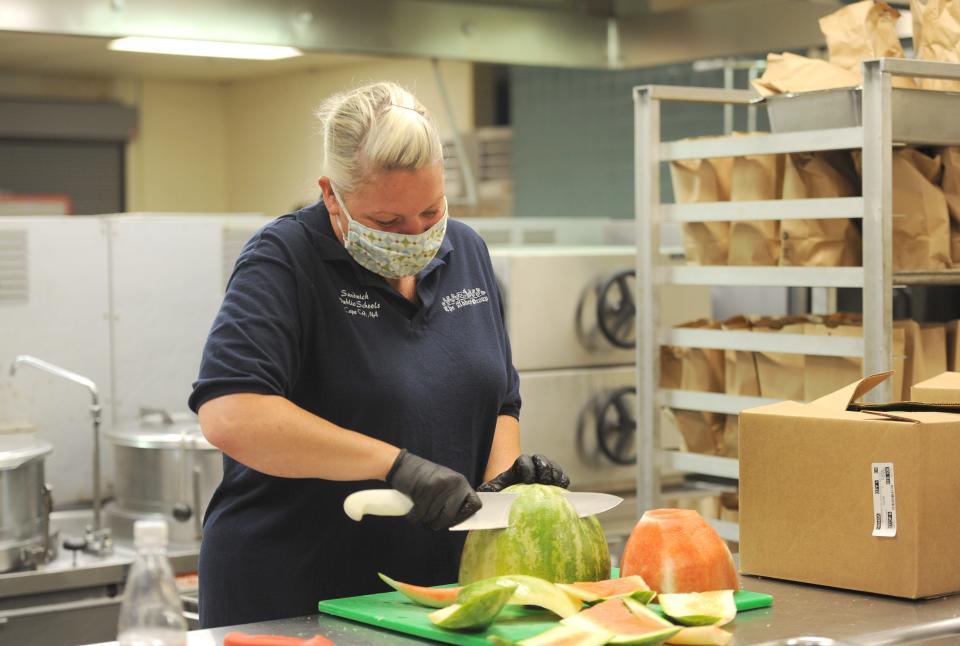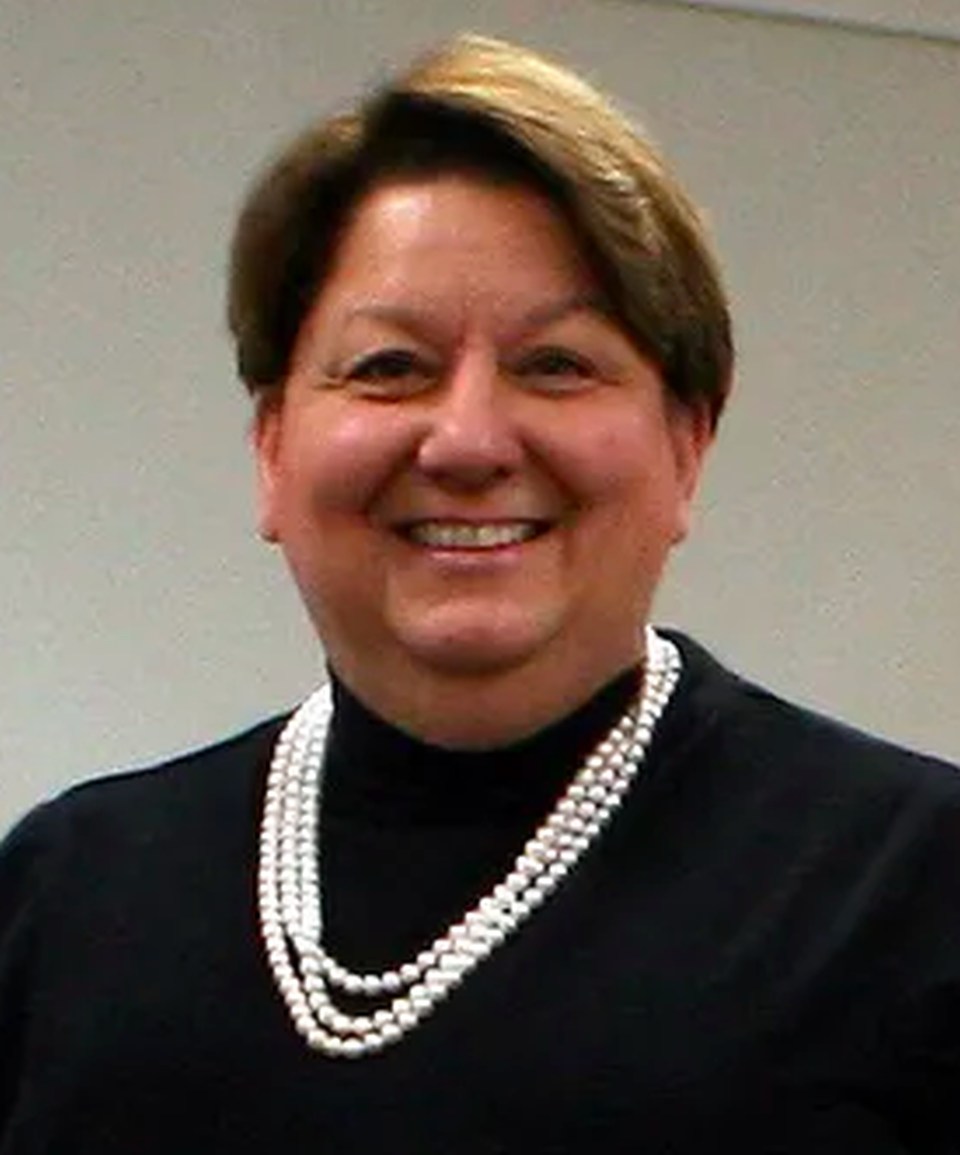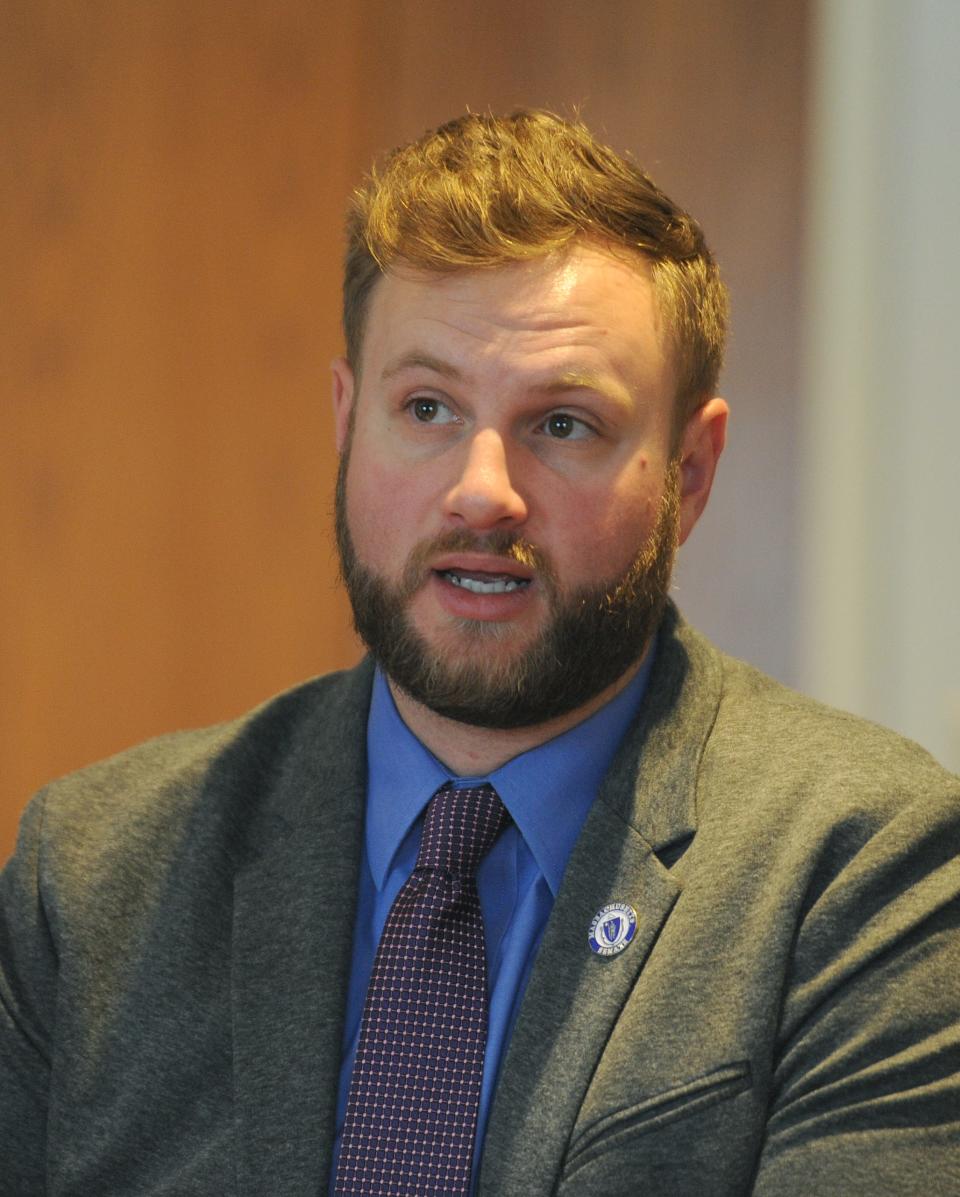Free school meals program at risk as Legislature debates 2023 budget
The future of free meals for Massachusetts public school students is uncertain. Federal funds for universal free meals end with this school year, but the state Legislature may renew the program in this year’s budget.
The universal free meals program has meant a lot for families, staff, and administration at Nauset Public Schools, said Superintendent Brooke Clenchy.
“For families, there’s that security in knowing that your child is going to be fed no matter what,” Clenchy said. “For staff and administration, there’s also the sense of comfort and security in knowing that your children are eating, so when they come into your class, they have a full tummy and they’re ready to learn.”

Cafeteria meals were made free for all students nationwide, regardless of family income, in March 2020 to help families through the pandemic. The program is now set to expire in June, and so far the federal government has taken no concrete steps to extend it.
The House’s FY2023 budget plan, passed last week, includes $110 million to continue free school meals for all, but it remains to be seen if that provision will make it into the Senate budget and through the conference committee negotiations. A separate bill to make the program permanent, filed last year by Sen. Sal DiDomenico, D-Everett, has not yet received a vote.
Clenchy said she would love to see the program continue, but without government money Nauset Public Schools wouldn’t have the funds to continue it.

If free school meals for all does not pass, some schools will still be able to provide all meals for free through the federally-funded Community Eligibility Provision by showing they have an adequate number of students eligible for free meals. Currently on Cape Cod four schools in the Barnstable school district and one school in the Dennis-Yarmouth school district participate.
Barnstable Public Schools saw a 10% increase in free meals served since the universal free meal program was implemented in 2020, said David Badot, the district's food and nutritional director.
“It really has been really helpful for the kids and their families because we still have a lot of food deficiencies in Barnstable and it has addressed a lot of those,” Badot said. “It also takes away the stigma of a child being identified if they were a free [meal] student."
Curious Cape Cod: Perfect spring hike in Yarmouthport with epic marsh vistas
The universality of the program "takes a lot of pressure off our students,” he said.
Badot got approval from the Barnstable School Committee Wednesday to apply for district-wide implementation of the Community Eligibility Provision, which would allow Barnstable to continue to use federal funds to provide universal free breakfast and lunch regardless of what the state passes.
“It’s a very, very long and tedious process,” Badot said, “so it does look like we’ll be moving in that direction, but it hasn’t been approved by the state as of yet.”

If Barnstable gets full approval of CEP, it would open the door for more programs such as grab-and-go meals or breakfast served in classrooms, Badot said. The approval process ends on July 30 and the district would need to re-apply every four years.
Sen. Julian Cyr, D-Truro, said there is “clearly a need” for free meal programs, pointing out that 12.4% of children in Barnstable County are food-insecure.
More: For kids, there is such a thing as a free meal
“Ideally” universal free school meals would be funded by the federal government, Cyr said, but Massachusetts can fund it at the state level, as other states, including California and Maine, have done.
“It’s encouraging that this is funded in the House budget,” Cyr said. “Food insecurity exists, unfortunately, across this nation despite our great wealth. I think we’re going to do what we can to continue this program absent federal action.”
This article originally appeared on Cape Cod Times: MA lawmakers debate continuing free school meals

